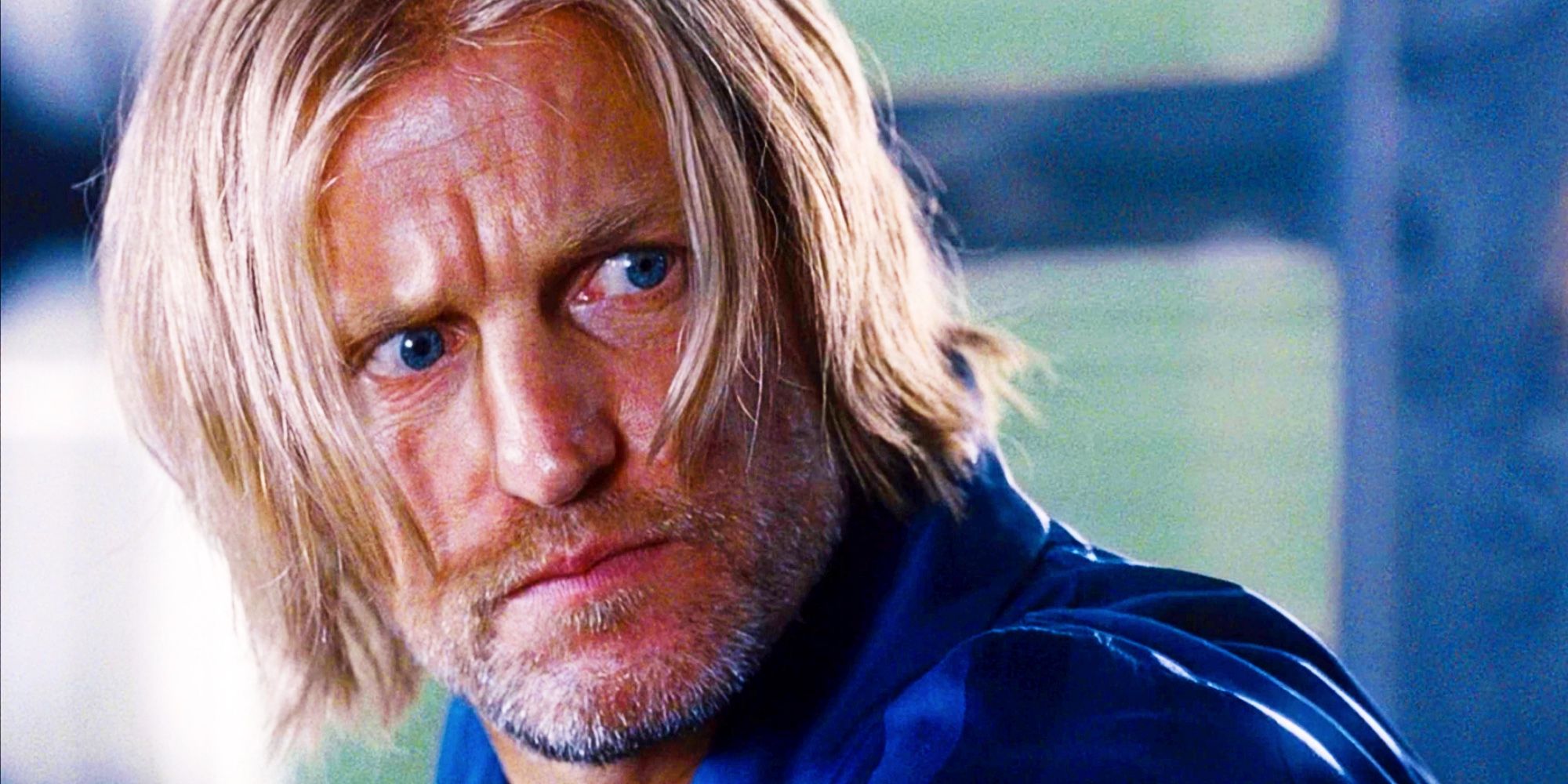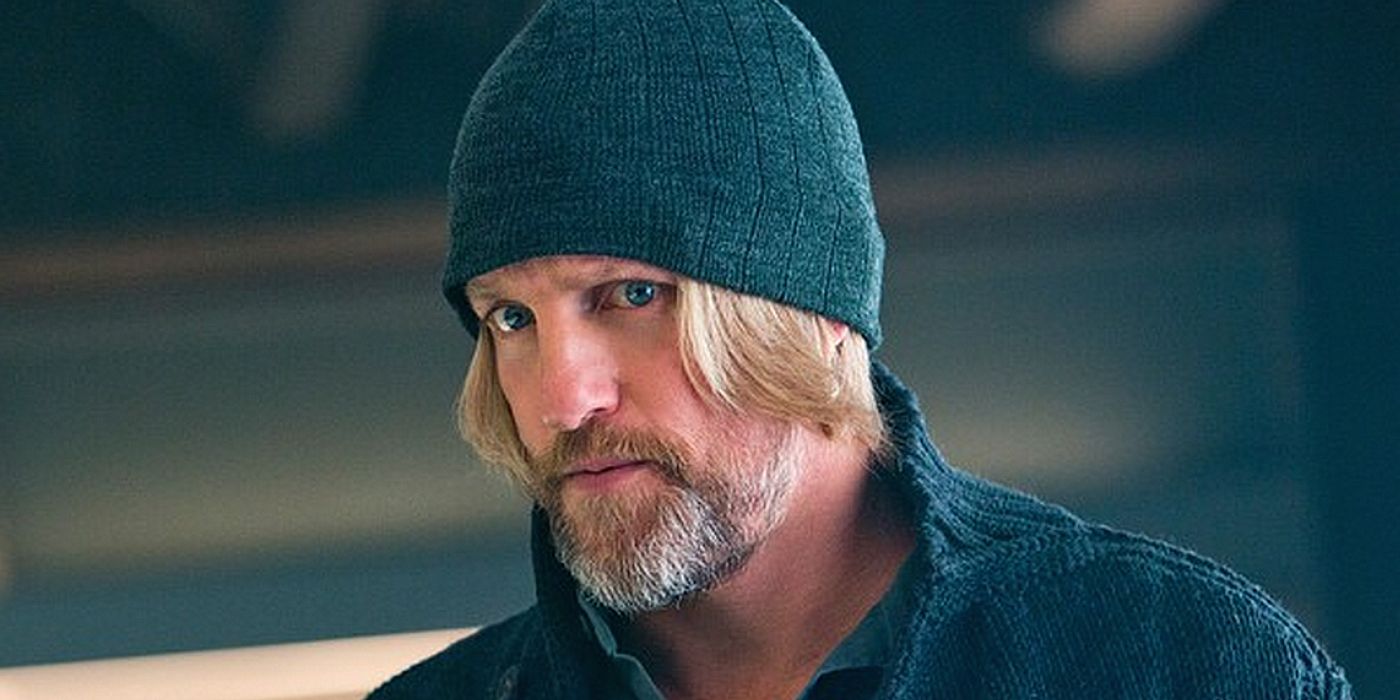In neglecting to tell Haymitch's backstory, The Hunger Games: Catching Fire misses a major opportunity to reveal the tragic truth behind the District 12 mentor's past and what it means for Katniss and Peeta's futures. While Catching Fire introduces the idea of the Quarter Quell—a special Hunger Games event occurring on every twenty-fifth anniversary of the Capitol's defeat of rebel insurrection—it fails to mention that Haymitch himself was a tribute in the 50th Hunger Games and the second ever Quarter Quell. Similar to Katniss and Peeta's re-entering the deadly arena as previous victors, Haymitch's Games had their own twisted spin: there would be double the number of tributes, and Haymitch would have to outlive them all if he wanted to survive.
In the novels upon which The Hunger Games films are based, author Suzanne Collins gives her readers a detailed account of Haymitch's experience in the arena. Like most tributes from District 12, he began as a loner and an underdog but soon found an ally in fellow tribute, Maysilee, who he was helpless to save from the vicious nature of the Games. He was also the first tribute in Hunger Games history to discover the force field that surrounded his arena, using it as a weapon in the final battle that granted him the victor's crown.
Because Catching Fire doesn't include the story of Haymitch's own Hunger Games, audiences are forced to wonder what drives his relationship with Katniss. While their participation in the Games draws them to one another, it is actually Katniss' defiance of the Capitol that cements their bond. Because of his use of the Capitol's force field in the Quarter Quell—a make-shift weapon that stunned the game makers and mocked the authority of the Capitol—Haymitch personally understood the repercussions of Katniss' decision to die rather than give the Capitol another victor. It is impossible, though, for the audience to understand this intimate connection without knowing Haymitch's personal history.
Haymitch's Hunger Games Backstory Would've Made His & Katniss' Stories Better
Audiences also miss out on Katniss and Haymitch's shared survivor's guilt and how it deepens their relationship due to Catching Fire cutting Haymitch's Hunger Games backstory. With the loss of their in-game allies—Haymitch with Maysilee and Katniss with Rue—they both understand the inevitability of death inside the arena and the necessity of rebellion against the Capitol. Other tributes, like Peeta, did not suffer through the emotional trauma and helplessness of losing an ally only to win the Games. This shared guilt would also explain why Haymitch promises Katniss that he will do everything in his power to protect Peeta Mellark during their second Games, because he knows she cannot be exposed to that kind of grief again.
The inclusion of Haymitch's backstory in The Hunger Games: Catching Fire would, ultimately, allow the audience to understand him in a deeper way than what they are allowed without it. His alcoholism, disgruntled attitude, and distaste for all things Capitol could be more easily understood if the grief of his past was disclosed. Plus, his mentorship and involvement in the rebellion would be seen as a righteous act of justice for his own traumas rather than being tied back to his relationship with the Mockingjay.
While a missed opportunity for The Hunger Games: Catching Fire, it's possible Haymitch's backstory could be explored in its own way down the line. With the upcoming release of the Hunger Games prequel, The Ballad of Songbirds and Snakes, which details the adolescent years of President Coriolanus Snow, it's possible that one day Haymitch's story might have its own moment on the big screen.


